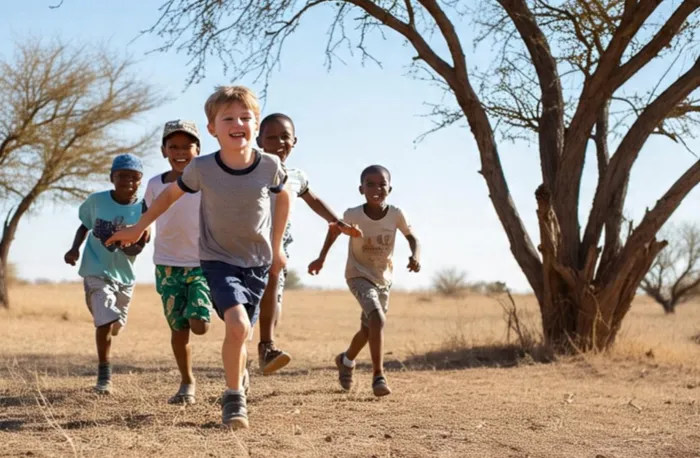
When the writer was a youngster, he and his friends didn’t need to be stars, not even exceptionally talented. They just needed a field, a mate, and the thrill of chasing a ball.
Image: Generated by Meta AI
COLLEGE days. Ah, those carefree, luxurious days. I remember them as if it were yesterday – though it's been more than 30 years. It was 1989, my final year at college, and exams were looming.
A friend and I, determined to buckle down, made what we thought was a noble decision: we told our Karate Sensei we’d be suspending training to focus on studies.
I’ll never forget his look – somewhere between disappointment and disbelief. He’d been preparing us for our black belt grading. We promised we’d return after the exams. Of course, we didn’t. Work came next, and with it, adulthood and responsibility, and since then my gi has been gathering dust.
The Mind Needs the Body
Looking back now, it was the worst decision we could have made.
Back then, I believed late nights of cramming were the price of success. What I didn’t know – what science and life have since made obvious – is that the human mind is actually aided by physical activity.
One author put it best when she wrote something about the advantages gained by physical activity will actually keep the mind from being overworked ... By putting strain on our muscles we bring relief to the overtaxed brain.
Something like that … actually, almost exactly that, because I feel it in my own bones.
Years later, I understand this completely. After Covid’s 2020 lockdown, the newsroom workload exploded. Time to decompress, to exercise, to breathe – gone. The result? Upside-down smiles all around.
And not just in journalism. Everywhere we look, stress is up, movement is down.
And there appears to be no remedy in sight.
Screens Instead of Sport
Today, leisure time is devoured by scrolling and streaming. Our bodies – those miraculous machines meant for motion – are idle.
When I was a motivated, if not terribly talented, Karateka, most people were active. Today, in many communities, it’s rare to see young people engaged in organised sport.
Archery, to name just one, random example, is proven to boost both discipline and academic performance – but how many youngsters even get the chance to try?
What we once took for granted – that sport was for everyone – is now seen as the preserve of elite schools or privileged families. When I was a youngster, we didn’t need to be stars, not even exceptionally talented. We just needed a field, a mate, and the thrill of chasing a ball.
Clumsy Together
I wasn’t a gifted cricketer, because of my butterfingers. I couldn’t stomach rugby — I didn’t like being tackled. Soccer? My two left feet never met the ball. But Physical Education was still a joy, because we were all in it together. We moved. We laughed. We sweated. We made mistakes and laughed at each other.
That mattered.
Something broke in this country when community sport disappeared. The disconnect runs deeper than we realise – because sport doesn’t just build muscles, it binds communities. It channels energy. It teaches resilience. And it gives young people a sense of belonging, identity, and possibility.
What’s at Stake
One writer captured it perfectly – and I happen to know him well. He’s been my brother for nearly 60 years. He wrote in one of his blogs:
“The process of transforming ‘Black’ rugby players into suitable candidates for the Springbok jersey bypasses the need for true transformation. The townships remain untransformed, breeding violence and bitterness. The shocking crime statistics that characterise post-apartheid South Africa leave one reeling in horror. The importance of sport in reference to the extreme levels of crime lies in its value as a distraction.”
The Final Stretch
That quote stays with me – because it names something we often skirt around. Crime is not just a policing problem. It’s a vacuum problem. A hope problem. And sometimes, a sport problem.
We quit Karate thinking we were getting serious about life. But life needs movement. It needs play, practice, and sweat. We need places where we can be clumsy together again.
Because when we stop running, catching, kicking and stretching – we don’t just lose fitness. We lose focus. We lose connection. And eventually, we lose each other.
Related Topics: